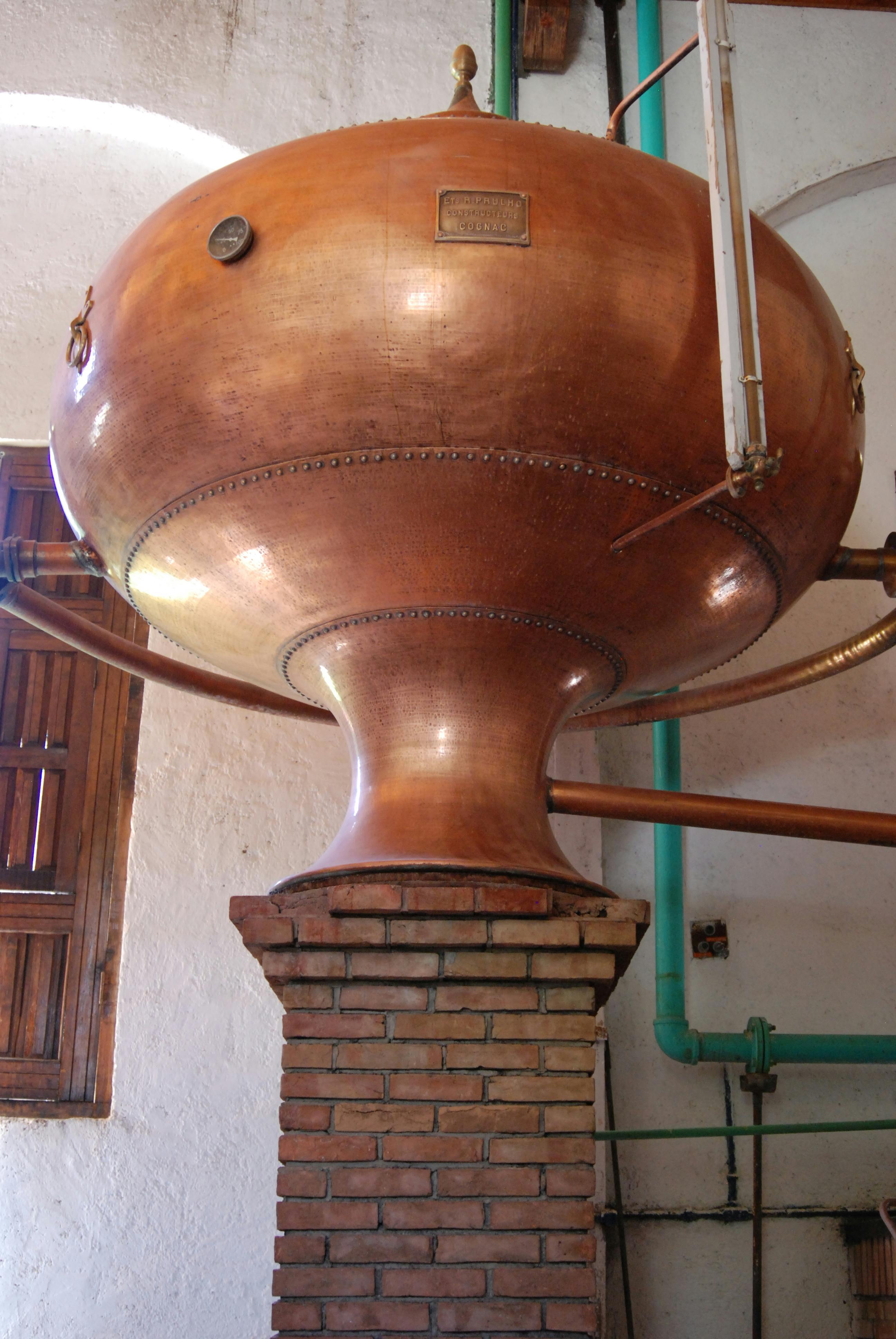
Pros and Cons of Retiring in Portugal
An honest, balanced assessment to help you decide if Portugal is the right retirement destination for you
While Portugal offers many advantages as a retirement destination, it's important to consider both the benefits and challenges before making such a significant life change.
Every country has its strengths and weaknesses, and what some retirees view as a positive aspect of life in Portugal, others might find challenging. This balanced assessment aims to give you a realistic picture of what to expect when retiring in Portugal.
Making an Informed Decision
The most successful international retirees in Portugal are those who arrive with realistic expectations. Understanding both the advantages and challenges helps prepare you for a smoother transition and long-term satisfaction with your retirement choice.
Lifestyle & Culture
Advantages
- Relaxed, low-stress pace of life
- Rich cultural heritage and traditions
- Excellent food and wine culture
- Safe environment with low crime rates
- Friendly, welcoming local population
Challenges
- Language barrier in some areas
- Cultural differences can take time to adjust to
- Slower service culture (restaurants, repairs, etc.)
- Some bureaucratic processes can be frustrating
- Limited entertainment options in smaller towns
Financial Considerations
Advantages
- 30-50% lower overall cost of living compared to US
- Potential tax benefits through NHR program
- Affordable property prices outside major cities
- Low healthcare costs
- Reasonable utility and service prices
Challenges
- Lower interest rates on savings accounts
- Rising property prices in popular areas
- Potential currency exchange rate fluctuations
- Higher import taxes on non-EU goods
- Lower local wages if planning to work part-time
Healthcare
Advantages
- High-quality healthcare system ranked above US
- Access to public healthcare for residents
- Affordable private insurance (€50-150/month)
- Excellent specialist care in major cities
- Significantly cheaper prescription medications
Challenges
- Potential language barriers in public system
- Wait times for some non-urgent procedures
- Fewer specialist options in rural areas
- Medicare doesn't cover care in Portugal
- Some specialized treatments may require travel
Climate & Environment
Advantages
- 300+ days of sunshine in many regions
- Mild winters (especially in the south)
- Clean air and low pollution
- Beautiful diverse landscapes
- Excellent beaches and outdoor activities
Challenges
- Humid winters can feel colder than thermometer shows
- Limited central heating in older properties
- Hot summers in interior regions
- Seasonal tourism crowds in popular areas
- Occasional forest fires in summer months
Infrastructure & Services
Advantages
- Excellent public transportation in cities
- Good road networks throughout the country
- High-speed internet widely available
- International airports with good connections
- Modern shopping facilities in urban areas
Challenges
- Limited public transportation in rural areas
- Some rural roads can be narrow/winding
- Occasional power outages during storms
- Fewer direct international flights outside Lisbon/Porto
- Limited services and shopping in smaller towns
Social & Family
Advantages
- Active expat communities in popular areas
- Family-oriented culture
- Many social clubs and activities for retirees
- Digital connectivity makes staying in touch easy
- Affordable flights to US/UK/Canada for visits
Challenges
- Distance from family (especially grandchildren)
- Potential isolation if not in expat areas
- Time zone differences for communication
- Cultural differences in socializing
- Holiday travel can be expensive
Common Adjustment Challenges
Most retirees experience some adjustment challenges when moving to Portugal. Being prepared for these common hurdles can help ease your transition:
The Pace of Life
Portugal operates at a noticeably slower pace than North America and even the UK. While this relaxed approach to life is ultimately a benefit for most retirees, the adjustment period can be frustrating.
Reality check: Expect services, repairs, and administrative processes to take longer than you're accustomed to. Embracing "Portuguese time" rather than fighting it leads to better mental health and integration.
Bureaucratic Processes
Portugal's bureaucracy can be cumbersome and sometimes contradictory. From residence permits to property purchases, administrative procedures often involve multiple steps and visits to various offices.
Reality check: Budget extra time for all official processes, consider hiring assistance for complex matters, and approach bureaucratic interactions with patience and good humor.
Language Learning Curve
Portuguese is not as widely studied as Spanish or French, making it a fresh challenge for many retirees. The pronunciation in particular can be difficult for English speakers.
Reality check: Start learning before you arrive, set realistic goals, and remember that even basic Portuguese will enhance your experience and earn goodwill from locals.
Missing Family and Familiar Comforts
The distance from family (especially grandchildren) and certain familiar products or services can create periodic homesickness, particularly during holidays or special occasions.
Reality check: Budget for regular visits home or family visits to Portugal. Establish video call routines, and find sources for comfort items from home (specialty shops or online ordering).
Building a Social Network
Creating a new social circle takes time and effort, especially if you're not in an area with an established expat community or don't speak fluent Portuguese.
Reality check: Be proactive about joining groups, attending events, and pursuing hobbies. Many successful retirees report the first year as the most challenging socially, with significant improvements thereafter.
Who Thrives in Portugal?
While Portugal can be wonderful for many retirees, certain personality types and preferences tend to match particularly well with Portuguese living:
You'll Likely Thrive in Portugal If You...
- Value experiences over material possessions
- Appreciate a slower pace of life
- Enjoy food culture and outdoor dining
- Are patient and adaptable
- Have interest in learning new languages/cultures
- Prefer mild climate and outdoor activities
- Value community and personal connections
- Can embrace some ambiguity and unpredictability
Portugal Might Be Challenging If You...
- Need extremely prompt service and efficiency
- Strongly prefer predictable, standardized processes
- Have no interest in learning any Portuguese
- Need constant high-energy nightlife and entertainment
- Cannot tolerate any bureaucratic processes
- Require very specific products/foods from home
- Find it difficult to adapt to new cultural norms
- Need to be very close to family on a weekly basis
Recent Changes Worth Noting
Portugal's popularity as a retirement destination has led to some changes in recent years that prospective retirees should be aware of:
Rising Property Prices
Property prices have increased significantly in popular areas like Lisbon, Porto, and parts of the Algarve. While still lower than major US/UK cities, the gap is narrowing. The Silver Coast and interior regions continue to offer excellent value.
NHR Tax Program Modifications
The Non-Habitual Resident tax program has been modified in recent years. Foreign pension income, previously exempt, is now taxed at a flat 10% rate. While still advantageous compared to many countries, it's less generous than the original scheme.
Visa Processing Times
With Portugal's growing popularity, visa processing times have increased. D7 visa applications now typically take 60-90 days, and scheduling SEF appointments for residence permits can involve months of waiting. Planning well in advance is essential.
Housing Rental Market
Long-term rental availability has tightened in popular areas due to the shift to short-term vacation rentals. Finding year-round rentals can be challenging in tourist regions, and prices have increased. Working with local real estate agents is increasingly important.
Growing Expat Communities
Expat communities have expanded significantly, making it easier to connect with fellow English speakers. While this eases the transition, it can also create cultural "bubbles" that limit integration with Portuguese society. Finding the right balance is important for long-term satisfaction.
Regional Pros and Cons
Different regions of Portugal offer varying advantages and challenges:
| Region | Major Advantages | Notable Challenges | Best For |
|---|---|---|---|
| Lisbon & Suburbs | Cosmopolitan lifestyle, excellent amenities, international connections | Highest prices, tourist crowds, steeper streets | Urban retirees who value culture and convenience |
| Cascais/Estoril | Beautiful coast, expat community, near Lisbon | High housing costs, seasonal tourism | Affluent retirees seeking seaside luxury |
| Porto & North | Authentic culture, lower costs than Lisbon, beautiful scenery | Rainier climate, fewer English speakers | Culture lovers who enjoy four seasons |
| Algarve (West) | Warmest climate, established expat community, golf courses | Touristy in summer, less authentic, higher prices | Sun-seekers and golf enthusiasts |
| Algarve (East) | Sunny climate, more authentic, lower prices | Fewer amenities, distance from airport | Value-conscious sun-seekers |
| Silver Coast | Beautiful beaches, affordable, proximity to Lisbon | Windier climate, fewer services in small towns | Beach lovers seeking authenticity and value |
| Central Portugal | Lowest prices, authentic culture, natural beauty | Few English speakers, distance from amenities | Rural enthusiasts and budget-conscious retirees |
| Madeira Island | Perfect climate, natural beauty, peaceful lifestyle | Island isolation, hillier terrain | Nature lovers seeking perfect weather |
A Balanced Perspective From Real Retirees

Thomas, 67, from Boston
Retired to Cascais 3 years ago
"The pros have far outweighed the cons for us, but it wasn't all smooth sailing. The slow pace of Portuguese bureaucracy was a significant adjustment, and setting up basics like banking and utilities took much longer than expected."
"We love the quality of life, the safety, and how our retirement dollars stretch so much further here. The healthcare has been excellent—better than what we had in the US for a fraction of the cost. Missing family events back home is the hardest part, but we've established a rhythm of visits that works for everyone."

Helen, 64, from Manchester
Retired to Tavira (Algarve) 5 years ago
"I wish someone had told me how challenging the winters can be in Portuguese homes. Despite the mild outdoor temperatures, the lack of central heating and poor insulation makes indoor living quite cold and damp from December to March."
"That said, I wouldn't change my decision. The relaxed lifestyle, friendly locals, and 9 months of glorious weather more than make up for it. I've installed efficient heating in my main rooms and adapted my wardrobe. Learning Portuguese has opened so many doors for me, both literally and figuratively."

Robert & Susan, 70 & 68, from Toronto
Retired to Porto 4 years ago
"We were drawn to Porto for its authenticity and lower costs compared to Lisbon. The biggest adjustment was the language—Portuguese is much harder than we anticipated, and while there are English speakers in the city, daily interactions often require some Portuguese."
"What we love most is the walkable city, incredible food scene, and how our retirement savings stretch so much further. We sold our Toronto home, purchased a beautiful apartment here outright, and still had money left to invest. The winter rainfall is heavier than expected, but it keeps everything lush and green."
Making an Informed Decision
To determine if Portugal is right for your retirement:
- Visit during different seasons before committing
- Rent before buying to test different areas
- Connect with expat groups for honest insights
- Consider a trial period (3-6 months) if possible
- Create a detailed budget based on your specific needs
Frequently Asked Questions About Portugal Retirement
Common questions about the realities of retiring in Portugal
Is the language barrier a significant problem for retirees in Portugal?
How does Portugal's cost of living compare to the US, UK, and Canada?
- Compared to the US: 30-50% lower overall, with the biggest savings in healthcare, housing, and dining
- Compared to the UK: 20-40% lower overall, with notable savings in property prices outside Lisbon
- Compared to Canada: 25-45% lower overall, particularly for food, wine, and entertainment
Do many retirees eventually leave Portugal, and if so, why?
- Family ties – especially to be closer to grandchildren or to care for aging parents
- Healthcare needs – specific complex medical conditions that require specialized treatment
- Cultural adjustment difficulties – some find the slower pace and bureaucracy challenging long-term
- Language barriers – those who don't learn Portuguese may feel increasingly isolated over time
- Climate preferences – some northerners find the humid winters in coastal areas uncomfortable
How reliable are utilities and internet services in Portugal?
- Electricity is reliable in most areas, though rural regions may experience occasional outages during storms
- Water service is generally consistent, though some rural properties rely on wells
- Internet infrastructure is excellent in cities and towns, with fiber optic connections widely available offering speeds from 100Mbps to 1Gbps
- Mobile coverage is comprehensive in populated areas with 4G/5G networks
How do Portuguese people generally feel about foreign retirees?
Is it difficult to make friends as a retiree in Portugal?

Ready to Weigh Your Options?
Let us help you evaluate if Portugal is the right retirement destination for your unique situation and preferences.
Get Portugal Retirement Updates
Sign up for our newsletter to receive the latest news, visa updates, and exclusive insider tips for retiring in Portugal.